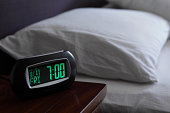(WBIR - KNOXVILLE) Research shows stress may be getting in the way of quality sleep.
Adults report sleeping an average of six hours per night, which is well below the minimum recommendation of seven to nine hours and its causing its fair share of side effects.
"Irritability. Trouble with coping. Dealing with situations at work and at home," said Dr. Rosanne Barker of the Baker Sleep Institute.
On top of that, 21 percent of adults report feeling more stressed because of that lack of sleep.
"Just about every aspect of our health is affected which relates back to stress," Dr. Barker said.
The cause of that stress can vary. But statistics show a growing reason, is linking back to the poor sleeping habits.
"One in three Americans are struggling with sleep every night. Either quality, quantity, or timing and they all really, really matter," Dr. Barker said.
Experts recommend adults get seven to nine hours of sleep a night and many are not even getting close.
"With less than seven hours of sleep, we are impaired and we are unhealthy. We don't adjust to that," Dr. Barker said.
Barker said it's those people that are seeing an increase in stress levels and negative health effects.
"As people get more anxious about not sleeping and more anxious about what's going on in their lives," she said. "They are more likely to think about that and ruminate with that, and have more difficulty sleeping. It can become a vicious cycle."
Stress expert Dr. Pete Sulack agrees.
"We want the body to get refreshed at night," Sulack said.
There are three things you can try to help you do just that.
First, go to sleep 30-60 minutes earlier.
"Melatonin levels peak at 10:00 at night," Dr. Sulack explained.
Second, create a pre bedtime ritual and wind down. Dr. Barker recommends setting a schedule that you stick closely to even six to seven days a week.
It's also important to eliminate all potential distractions from your room like an iPad or television.
"For every hour of sleep lost, there is at least one piece of electronics in the bedroom," Dr. Barker said.
Experts said women are significantly more likely than men to experience problems. Particularly not feeling rested after sleep, having trouble falling asleep, and trouble staying asleep.


